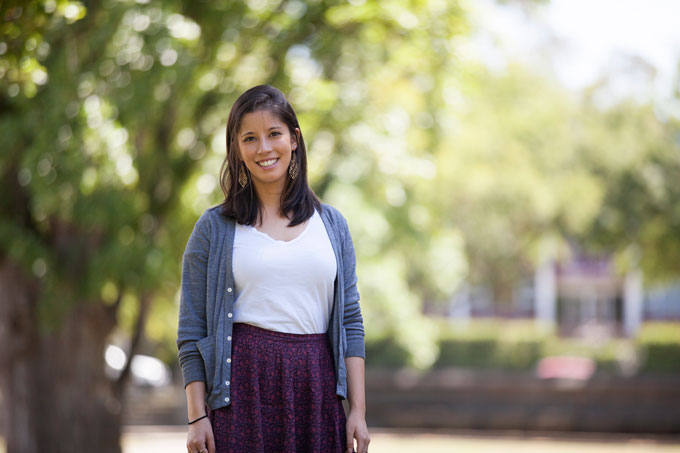Kelsea’s journey to science communication

Finding a career path can be daunting but having an open mind has helped Kelsea Lee discover an avenue into science communication.
“I did my undergrad in conservation biology and environmental ecology,” Kelsea says. “But I realised after four years of lab work that it wasn’t where my skill-set, or my passion, was.”
“However, I did really like sharing the scientific concepts with people, and I wanted to stay involved with conservation work, so I decided that science outreach was definitely the way to go.
“So far it has been the right path for me, and fun too.”
Hailing from Portland, Oregon, Kelsea loves travelling. She studied her undergraduate degree in Scotland and took a number of field trips, including to Antarctica.
Australia was the only continent she hadn’t travelled to yet, and with ANU as a stand-out option, it was the perfect place for her to study a Master of Science Communication.
“It has definitely lived up to my expectations.
“Everyone here is enthusiastic and welcoming. That’s a really good feeling when you step into a new department, a new field, and a new country.”
“As for the program, I really like the focus on the theoretical background of science communication. I am learning things like how to break down an audience, how different aspects of the public are going to react to science, and how to maximise your efforts to create an impact.”
Having previously worked in the safari industry, Kelsea’s dream is to travel to Africa to continue conservation work, but now with a focus on science communication.
“I want to look at how to improve communication between communities living within natural habitats, or how I can coordinate more effective communication between large conservation organisations which are working towards the same goals.
“There are so many different avenues that science communication can take you down. Having a Master degree opens up even more opportunities and makes you more employable.”
